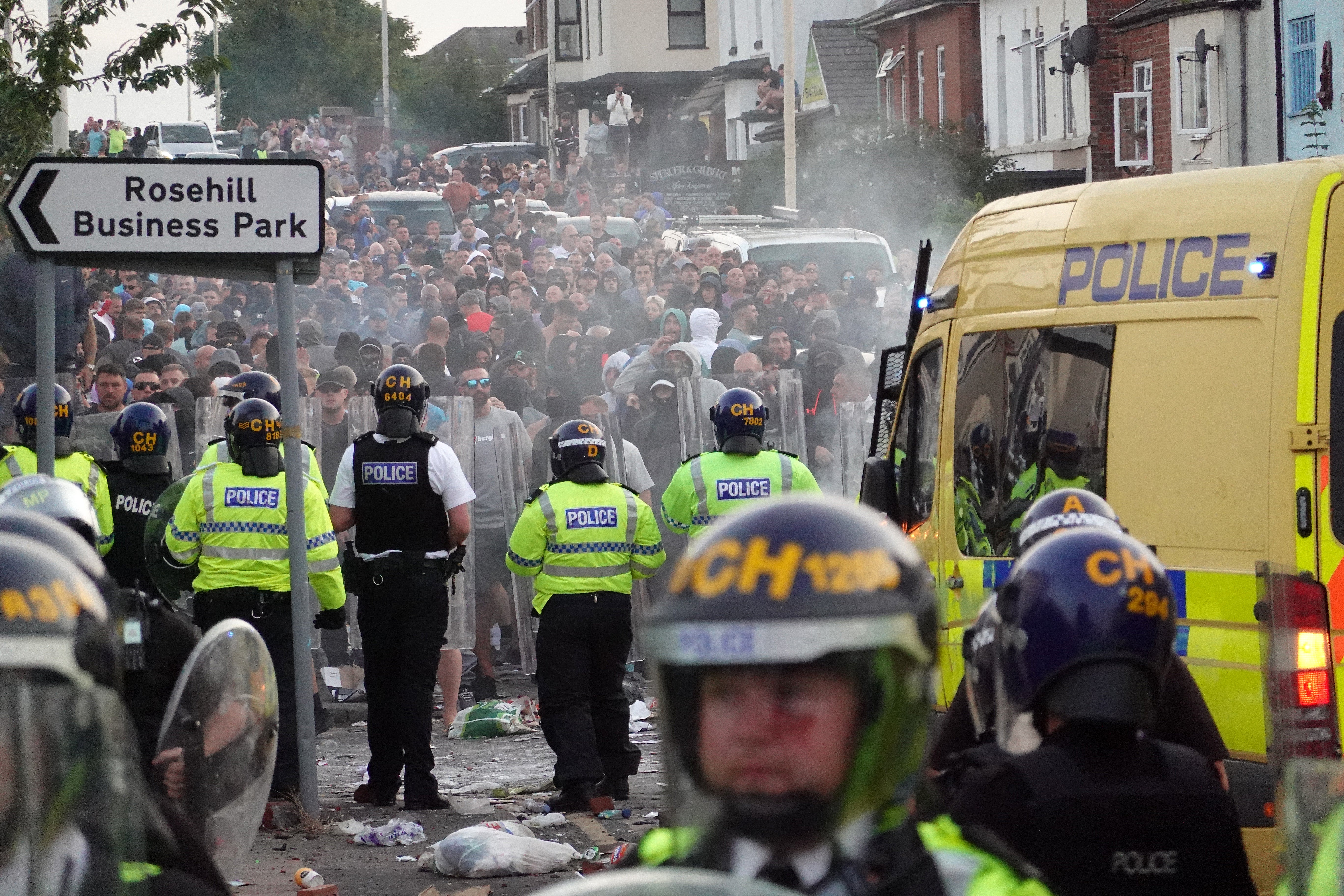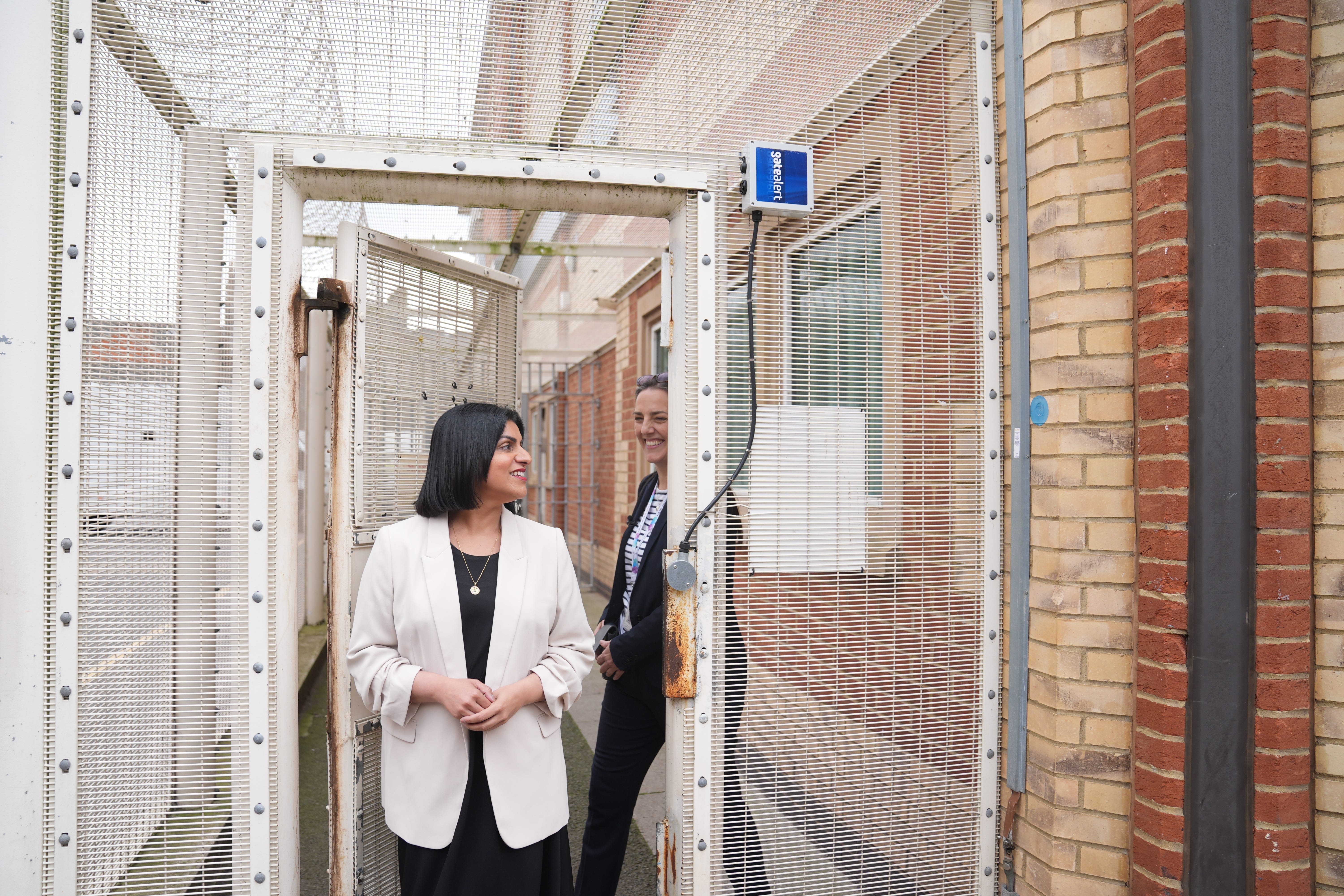Sir Keir Starmer has said he was forced to check every day whether there were enough prison spaces to arrest and jail suspects during the far right-fuelled riots in the wake of the Southport knife attack.
As reports suggested prison capacity had reached an all-time low on Tuesday, with just 100 beds left across all men’s prisons in England and Wales, the prime minister gave a speech from Downing Street lambasting his Tory predecessors for leaving behind “a societal black hole”.
“Every day of that disorder, literally every day, we had to check the precise number of prison places and where those places were to make sure we could arrest, charge and prosecute people quickly,” Sir Keir told reporters from the No 10 rose garden.

“Not having enough prison places is about as fundamental a failure as you can get and those people throwing rocks, torching cars, making threats, they didn’t just know the system was broken, they were betting on it, gaming it.
“They thought: ‘Ah, they’ll never arrest me and if they do, I won’t be prosecuted, and if I am, I won’t get much of a sentence.’
“They saw the cracks in our society after 14 years of failure and they exploited them. That’s what we’ve inherited. Not just an economic black hole, a societal black hole, and that’s why we have to take action and do things differently.”
According to the latest figures from police chiefs, there had been 1,165 arrests and 703 charges brought as of 18 August in relation to the riots which erupted after online misinformation about the identity of the Southport suspect fuelled anger and anti-immigration sentiment.
But with the prison system already at bursting point ahead of thousands of inmates being freed early in September, ministers have had to reintroduce emergency plans to ask magistrates to delay sentencing hearings and hold suspects in police custody until they are summoned to court.

Experts previously told The Independent that prison capacity was already “touch and go” before the riots, and on Tuesday The Telegraph reported that there were just 100 spaces left in men’s prisons after a surge in arrests over the Bank Holiday weekend, including 330 at the Notting Hill Carnival.
That will include spaces in open prisons and other parts of the estate not suitable for some suspects to be held, raising the prospect of unprecedented “one-in-one-out” measures named Operation Brinker which would see suspects driven around the country in secure vans until a cell can be found for them.
According to The Telegraph, the number of people being released from prison this week has yet to catch up with the number of arrests over the weekend, including those being held in custody for alleged assault, possession of guns, knives or drugs, theft and sexual offences.
In comments harking back to the 2011 riots, during which Sir Keir was director for public prosecutions, the PM said on Tuesday that one of the main ways to respond to the recent riots was to ensure those involved faced the consequences “within days”, adding: “I had to create the conditions for that.”
Sir Keir said he had been sitting in a Cabinet Office briefing room “with a list of prison places across the country on a day-by-day basis, trying to work out how we deal with disorder”.

According to the latest official figures up to Friday, a total of 406 suspected rioters had so far been refused bail after a first court hearing, 50 had been sentenced by a magistrate, and 123 out of 133 people sentenced in the crown courts had been jailed.
A Ministry of Justice spokesperson said: “The new government inherited a justice system in crisis and has been forced into taking difficult but necessary action to ensure we can keep locking up dangerous criminals and protect the public.
“Staff across the whole criminal justice system are working incredibly hard and the government will continue to support them before the changes come into effect on 10 September.”
Those changes will see thousands of inmates – excluding those convicted of violent, sexual and some stalking-related offences – freed 40 per cent of the way into their sentence, rather than halfway through.
With the probation system already in crisis, experts have expressed concern over how that service will cope with an influx of new offenders to supervise in the community.
But the probation union Napo has expressed hope that the new changes will be an improvement over the “chaotic” Tory schemes which have seen more than 10,000 inmates freed up to 18, 35 and then 70 days early since October, often leaving little or no time to properly plan for their release.











